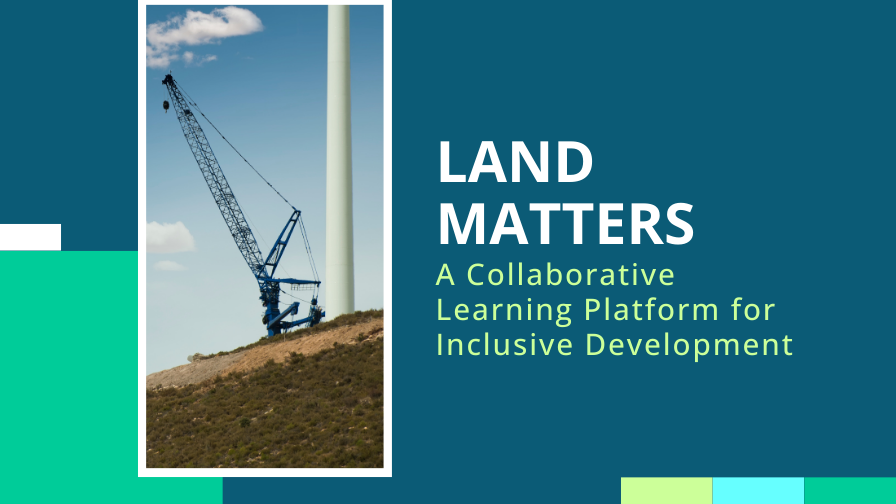In the evolving landscape of land development on government-owned and communal land in South Africa, the Land Matters Practice Development process is testing a different way of working, one that places learning, reflection, and collaboration at the centre. Since May 2025, INSPIRE and a commercial renewable energy company have convened a series of workshops and reflective discussions, seeking to make better sense of the complexities of land governance, community engagement, and commercial project development. These encounters have sought to be open, honest, and grounded in practice, and have generated interesting insights.
Embracing Complexity Through Continuous Reflection
At the heart of this work is the Action Learning Cycle; the idea that reflection and adaptation are not separate from the work, but a part of it. In the June workshop, participants brought this cycle to life by sharing stories from the project journey, practicing deep listening, and exploring how social, legal, and commercial dimensions of this work intersect.
The conversations highlighted the realities of working within multiple legal frameworks—customary law, state custodianship, and commercial requirements, and the frustrations of navigating bureaucracy and financing blockages that often slow progress.
One practical insight was the value of preparedness and tangible tools. Maps and printed materials helped create clarity, reduce conflict, and bring people into the conversation. As one participant reflected, “maps help provide a sense of who we are.”
Diplomacy and Partnership Over Being Right
The importance of relationships has surfaced as a strong theme. Progress depends less on being “right” than on building trust and maintaining partnerships. This means holding the balance between government’s responsibility to protect land and ensure benefits for communities, and the push for responsible commercial development.
Yet the reality is difficult. Even when communities give full consent to projects, legal and financial bottlenecks persist. Financial institutions may not recognise community agreements as secure, while government departments work in silos. This raises difficult but necessary questions: Do communities truly own their land if their decisions cannot unlock value? And who carries the risk of delays when all the rules have been followed?
These are not challenges that can be solved by one project team. They point to the need for broader, national-level conversations that bring together government, financiers, traditional leaders, and developers to rethink how value is created and shared on communal land. The challenge is to find inclusive governance mechanisms that unblock processes without creating antagonism, and to ensure that the intent of legislation translates into practice.
Working in this space comes with cognitive, emotional, and commercial pressures. It is important to care for one another, to recognise the diversity of identities and traditions involved, and to be willing to ask, and engage with the hard questions about the costs of honouring tradition in development processes.
Stories as Tools for Learning
What is emerging from Land Matters work to date is more than a process. It is a platform for collective reflection and storytelling. Stories of lived experience are proving to be powerful tools for building trust within the team, for reshaping practice, and opening new perspectives.
By documenting these lessons and sharing insights carefully with selected stakeholders, Land Matters hopes not only to strengthen specific projects but also to inform how commercial development is approached on communal and state-owned land.
As one participant put it: “Everybody loves good stories. Are there opportunities to tell stories of change out of this process?” The answer is yes! Land Matters is one such story, still unfolding.

